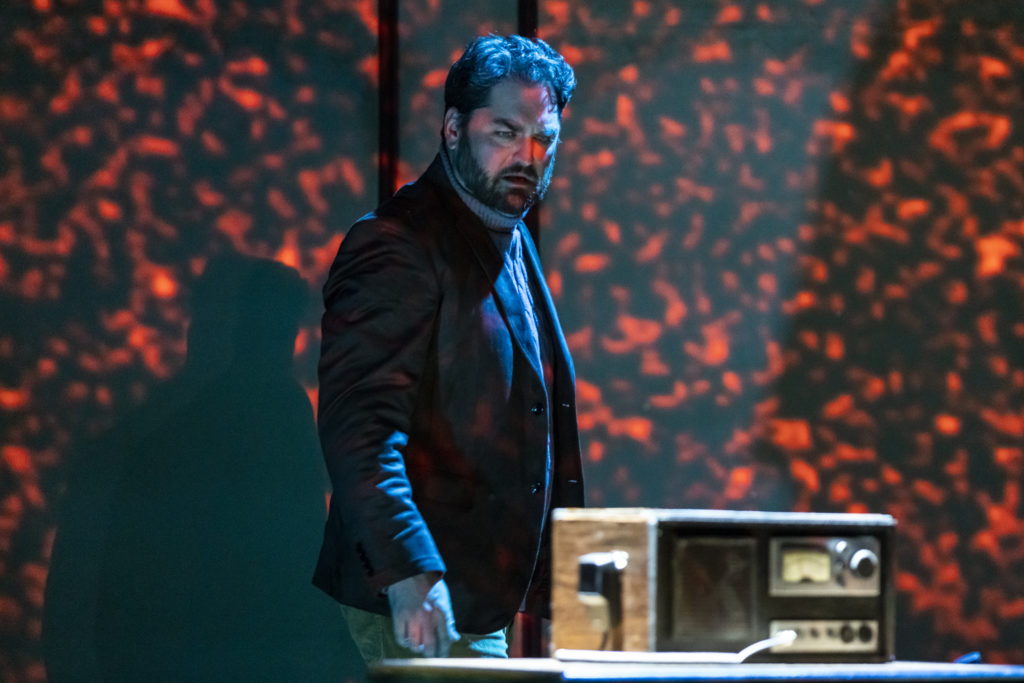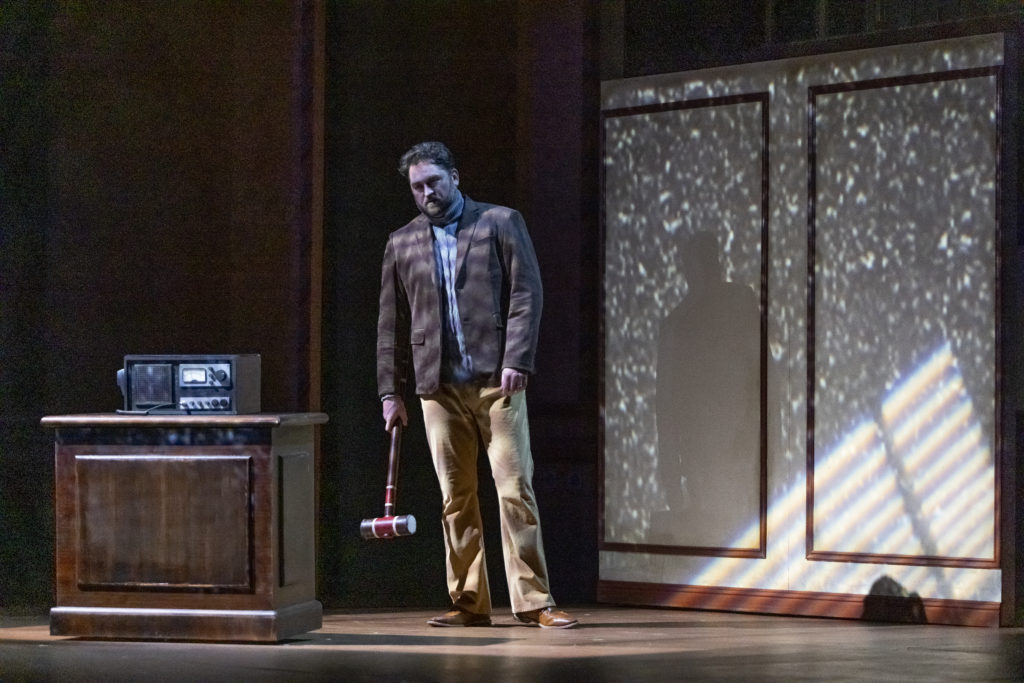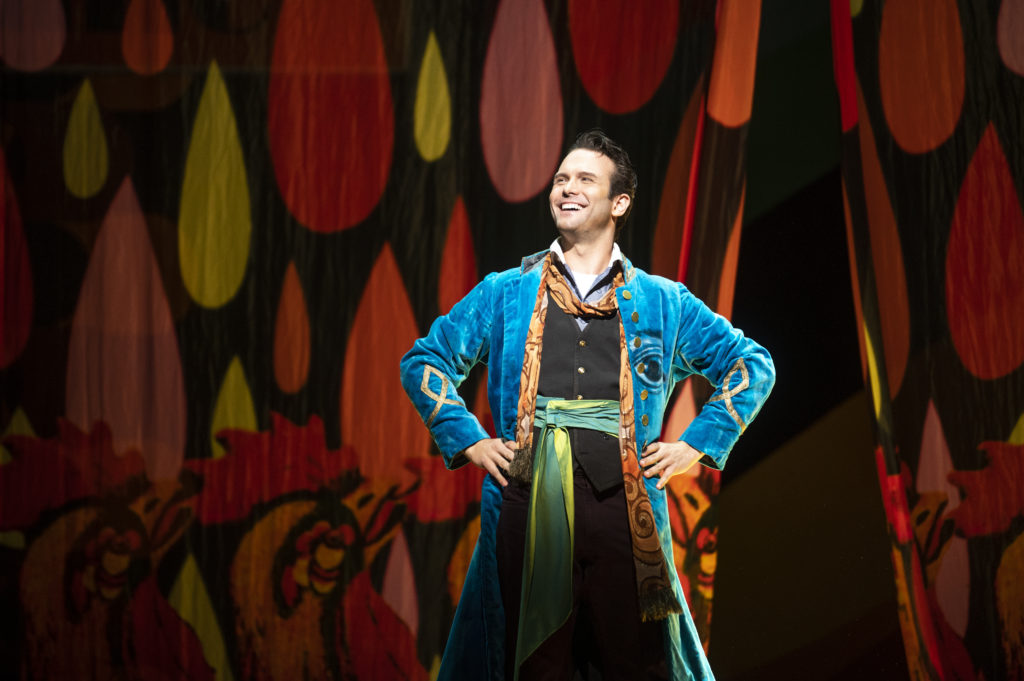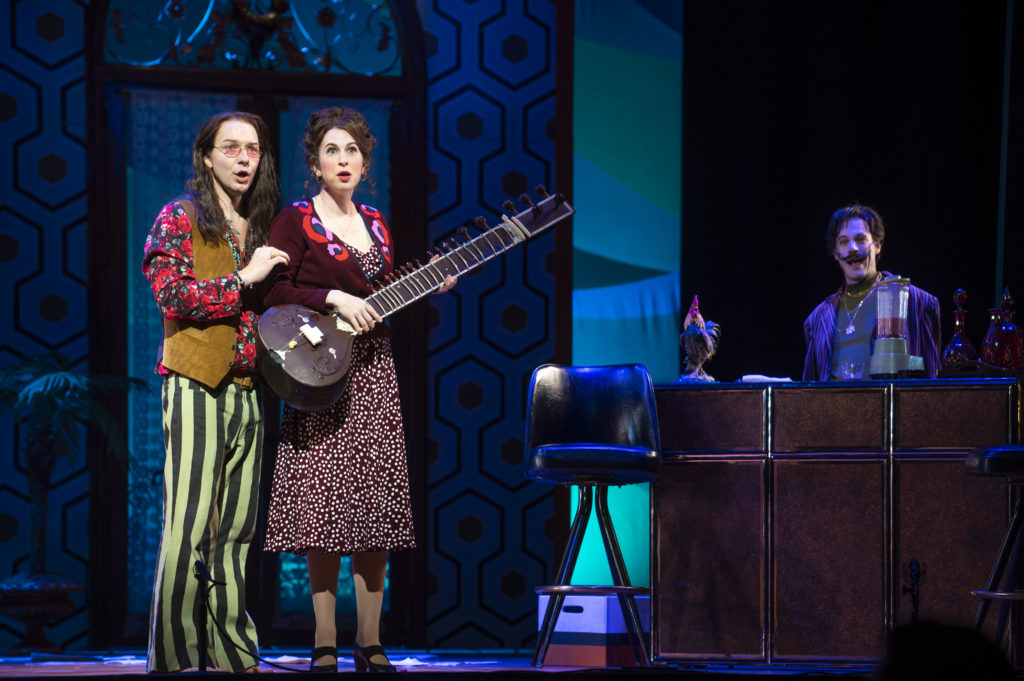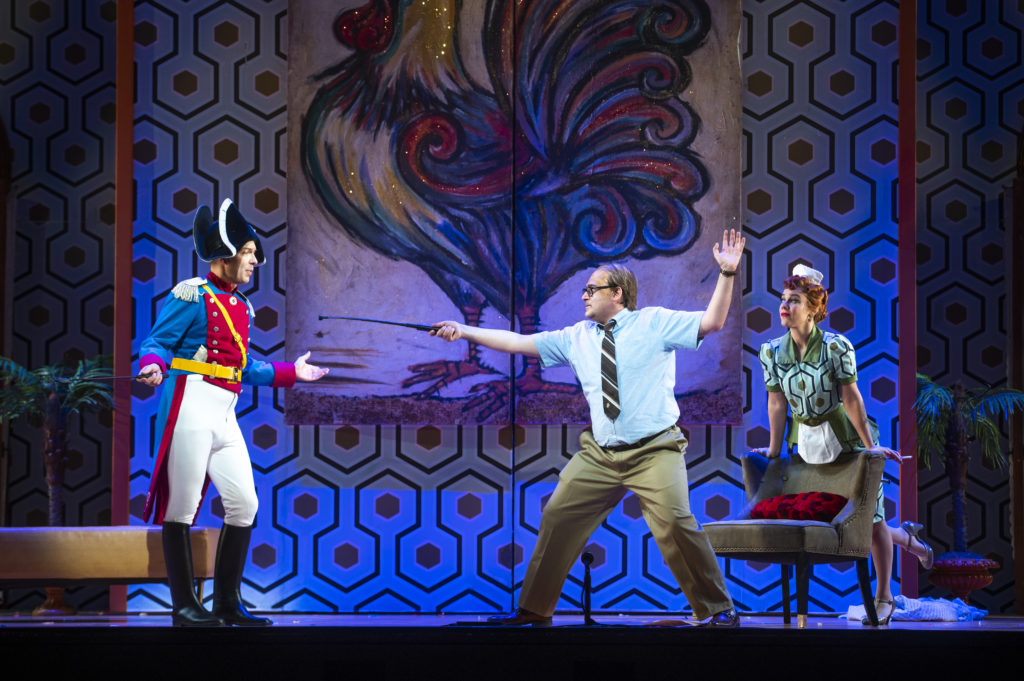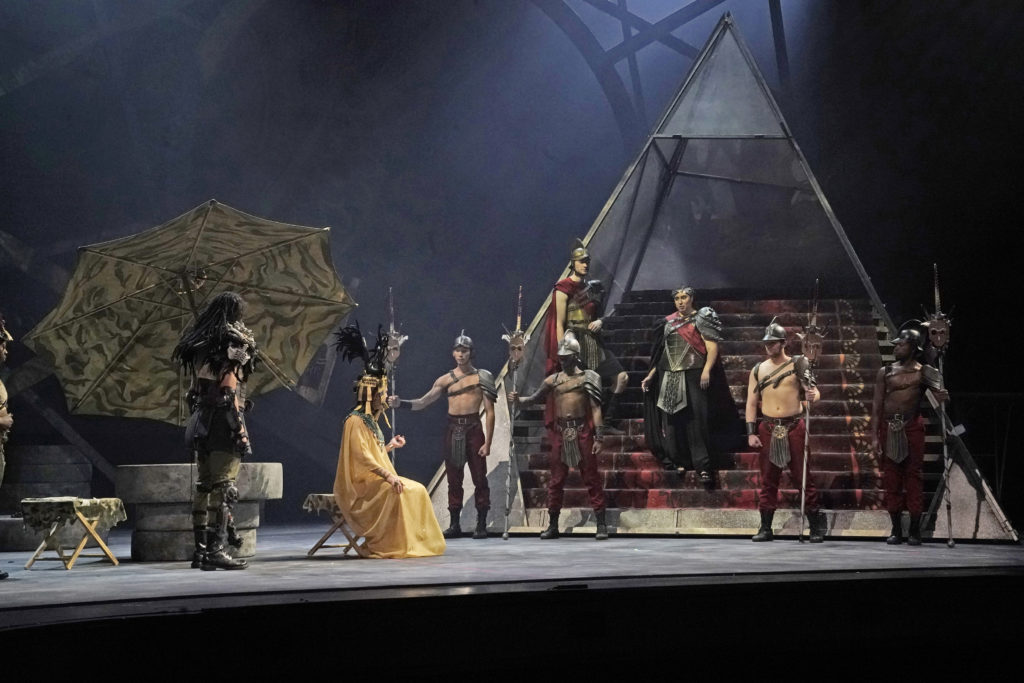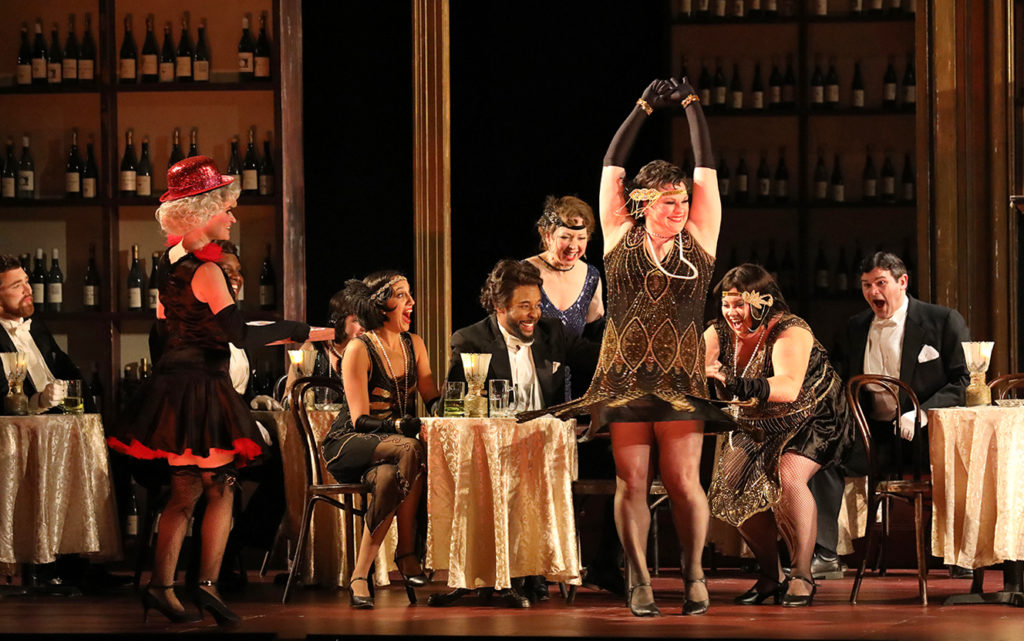As the brutal summer of 2023 comes to a close, the Atlanta Opera rolls out the red carpet and welcomes autumn with the first offering of its 2023-2024 season: The southeastern premiere of Paul Moravec’s opera, The Shining, as part of its acclaimed Discoveries Series. Based on Stephen King’s iconic novel of the same name, Moravec’s The Shining, with a libretto by Mark Campbell, premiered in Minnesota back in 2016, and the opening run packed the Orway Center for the Performing Arts and earned the work positive reviews. It has since made the rounds at important American regional companies (Opera Colorado, Opera Parallele, Lyric Opera of Kansas City audiences have already been spooked by it) and was introduced to Atlanta this past Friday in a co-presentation between the Atlanta Opera and the Alliance Theater.
Horror movie enthusiasts beware: The opera is based on the King novel instead of the landmark Kubrick film. This puts the team of Moravec & Campbell, initially, at a narrative advantage. The opening scene of the first act, for instance, depicting the Torrances as a realistic couple with a young child struggling to move past the shadow of past trauma and substance abuse, flourishes dramatically. This allowed the Atlanta Opera audience to easily connect with the leads (the gifted Craig Irvin as Jack and Kelly Kaduce as Wendy) and rally behind their young son Danny, played with earnest conviction by Max Walls. This opener, and the subsequent tour of the hotel’s grounds played to Mr. Moravec’s strengths. His thematic treatment is insistently attractive and consistently incomplete, proving most effective when Mr. Movavec would ping pong between disparate situations: such as Jack’s boiler tour, juxtaposed with the extraordinary encounter between Halloran and Danny. This linear, organized exposition, coupled with the clever and smart filmed media work of Felipe Barral and Amanda Sachtleben, produced a striking opening scene, and gifted Mr. Moravec with the rest of the evening to gradually tear away at Jack Torrance’s mind. This is, unfortunately, where the real challenge comes, and Mr. Moravec’s style was less serviceable in that respect.
Often evocative of Copland, Bernand Hermann, John Adams and late Verdi, Mr. Moravec’s score is rich in flourishes and effects, but fails to strike a memorable note in the mind’s ear. Themes are introduced but never given the space to enjoy a proper life. While this empowers Moravec to create a general sense of unease, it left the audience with little to hang on to. Wendy’s various solos (including a lullaby in act one) as well the finale of the first act and the big band tune which is heavily featured in the second, are left woefully incomplete. More troubling, the orchestral voice does little to convey the inescapable presence of the Colorado winter, which insidiously pins the protagonists further down the psychological and physical isolation that modern audiences are so primed to relate to after the recent worldwide lockdown. Instead, the score accompanies even the most unimportant exchange with flourishes and summersaults: Even musical isolation is out of the question. Mark Campbell’s text was disappointingly banal and rendered awkward when activated by the score.
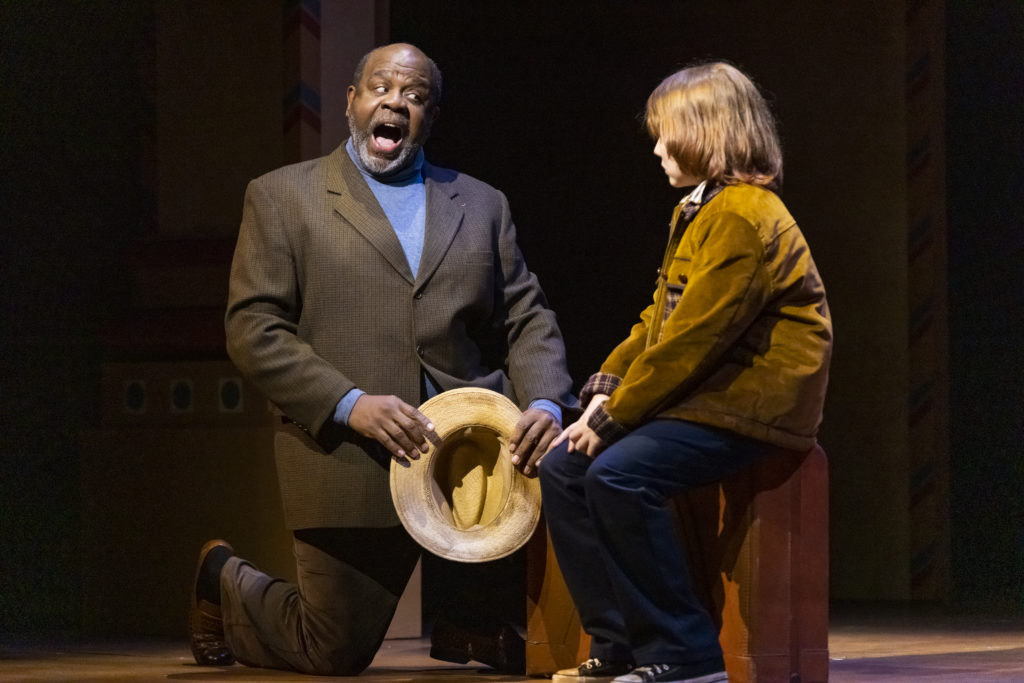
Filling in the blanks, stage director Brian Staufenbiel, in large part profiting from the natural chemistry between Craig Irvin’s Jack and Kelly Kaduce’s Wendy, brought well rounded performances out of the principal artists. Alongside the work of scenic designer Jacquelyn Scott, and projections by David Murakami, the production promotes the natural development of the action onstage, but while it achieved genuine tension in various scenes, the production team was hard pressed to compensate for the shortcomings of the score in terms of eliciting horror. Similar as in the case of the score, set design does little to feature the primordial threat of the winter siege which trap the occupants of the Overlook, and the set design missed opportunities to emphasize claustrophobia. Bypassing the original direction to have them distort and melt to emulate Jack’s mental state (the Minnesota premiere production notes are floating online for any savvy online detective to obtain) would have contributed (though not solved) the situation. Save the scene where the ghost of Mrs. Massey physically attacks Danny in act two (which produced a genuine reaction in the auditorium,) the apparition scenes are imbued with the sort of cartoonish vibe that made DragonCon 2023 a great success the previous weekend.
Amidst these limited conditions, it was left for conductor Timothy Myers to navigate the odd acoustics of the Alliance Theater and hold the proceedings together. The maestro drew convincing sonority from Moravec’s sanctioned re-orchestration of the score (down two thirds from the premiere) by way of a disciplined baton and brisk tempi. His cast is particularly fine, led by Craig Irvin as Jack Torrance, who delivered a physically compelling and emotionally profound performance aimed at conveying Jack’s descend to madness when the score could not. I almost bought it. His sound is distinctive and, when permitted, exhibited a lush, beautiful baritone – musically miscast for the score restricts his involvement to declamatory fits and starts. He is, essentially, the Method Man to Kelly Kaduce’s Mary J. Blige, or in this case Wendy Torrance. A favorite of Atlanta audiences (I recall Ms. Kaduce memorable Atlanta Opera debut as Pamina in Mozart’s Die Zauberflote back in 2003,) Ms. Kaduce is back in town, this time portraying the part she premiered in Minnesota back in 2016. And she takes the honor to heart, immersing herself into this assignment with brave dramatic conviction. Vocally, the voice has attained full lyric soprano status, and can swell impressively to do right by the hysterical reactions to her husband’s unravelling. Though her tone has predictably lost some of the fresh bloom that graced her debut twenty years ago, her overall vocalism has gained in size and possibilities. I am thrilled for the opportunity to hear her once again.
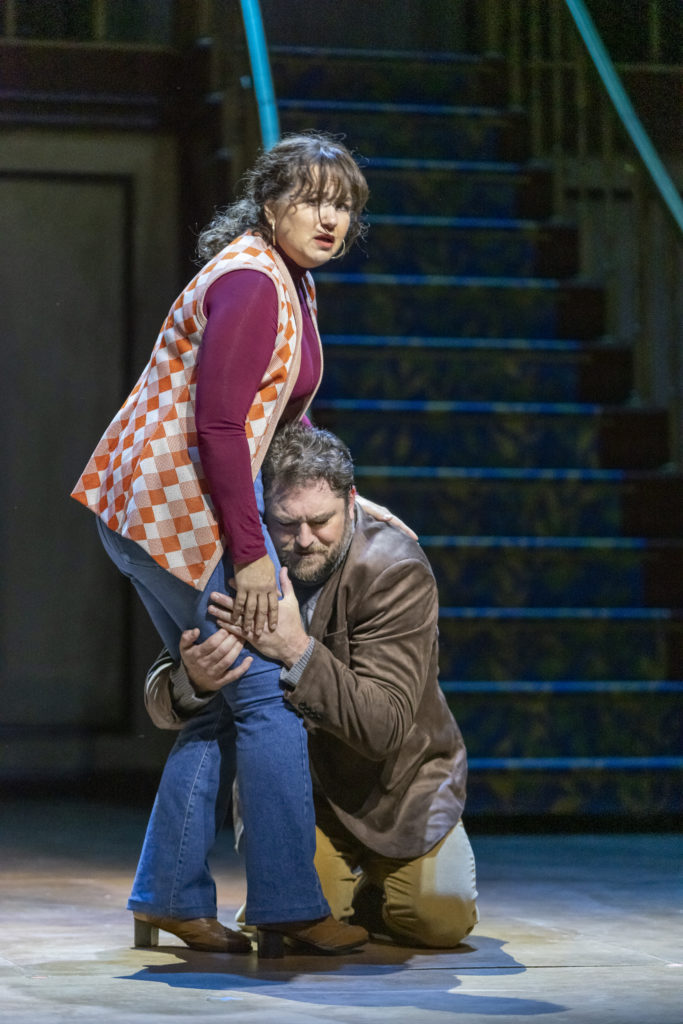
As in the case of the opera’s premiere, the role of Danny Torrance, entrusted in these performances to the talented Max Walls, is given to a child actor who performs his part through the assistance of amplification. The aural disconnect that invariably results from such practice (quite off putting whenever its spotted in opera performances) solicited some adjustment, and since Danny is only required to sing a couple of bars in the entire evening, one wonders whether an adolescent of short stature could do right by the part without reverting to such tricks. Regardless, young Max Walls delivered a committed and impressive performance and even nailed the lip sync as the Atlanta Opera Ensemble voiced his responses during the trance scene in act two. Shante.
The principals were rounded off with the important contribution of Kevin Deas as Dick Hallorann and his soft-grained, gracious bass baritone navigated the score’s long lines with great success. Hallorann’s acclimation to Danny can be read as quite creepy in 2023’s trigger-happy society, and Mr. Deas delivered a faithful reading of the character’s benevolent mentorship of Danny within the limitations of the source material. His involvement also illustrated how careful adaptation is needed in order to translate the impact of a work of literature into successful theater. Remaining true to the King novel, the team of Moravec and Campbell end the opera not at the moment when Jack Torrance lets the boiler blow up the Overlook, but with the epilogue which depicts the remaining principals recovering from the tragedy at a hotel in Maine eight months later. This yielded one of the better musical offerings of the evening, Hallorann’s “These woeful days will be over,” and an anticlimactic end to a night at the opera.
Being the basic (and very bold) opera person that I am, I dare suggest inserting this scene into the main body of the second act as a premonition by Danny prior to the opera’s final sequences (perhaps after Jack is locked in the pantry, or maybe following Danny’s comatose state after Mrs. Massey’s attack). This would yield a scene depicting Danny’s shining in its full expression, while allowing for a more conventionally curtain with the destruction of the Overlook, a la Le Prophete.
Though not a complete homerun, Moravec’s The Shining provides a bold start to Atlanta’s opera season, which will include performances of Michael Shapiro’s Frankenstein, Verdi’s Rigoletto, Puccini’s La Boheme, Britten’s A Midsummer Night’s Dream, and the second installment of the Atlanta Opera’s first stab at Wagner’s Ring Cycle: Die Walkure. The Shining runs through October 1st, and rumor has it that the company may be adding new dates as I type. For more information, please visit the company’s website at www.atlantaopera.org
